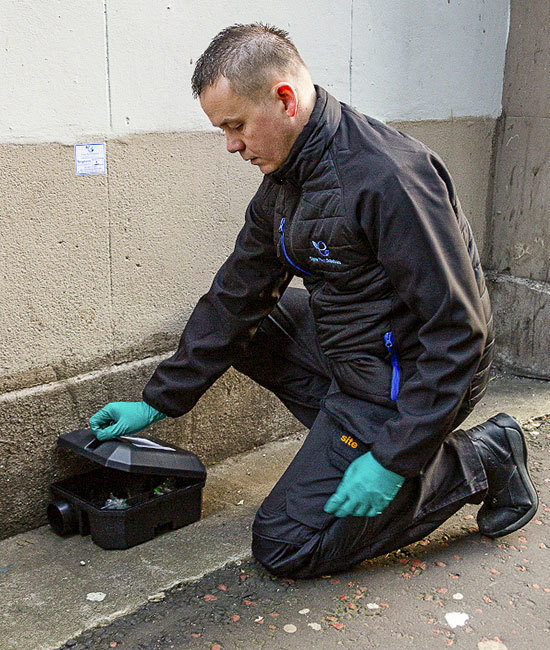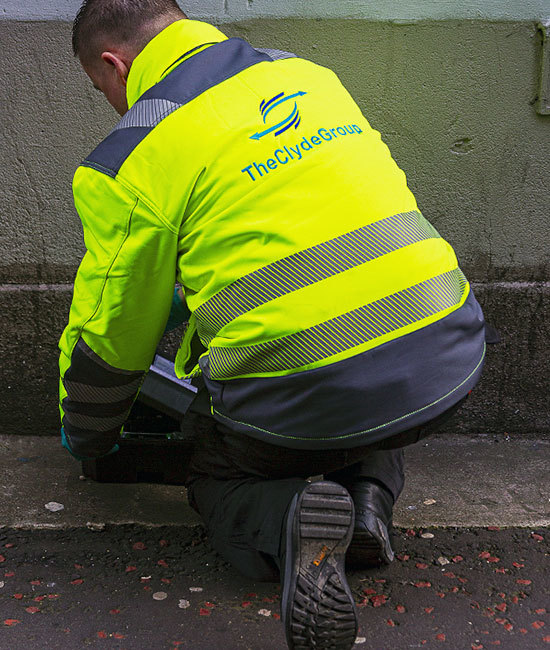Case Studies
Case Study | Rat Infestation Management at A Glasgow Bus Company Depot
Introduction
Background: A Glasgow bus company, operating a major bus depot in Glasgow, has recently encountered a significant challenge in the form of a large-scale rat infestation. This situation is causing considerable operational disruptions, damage to infrastructure, and adverse impacts on staff morale and safety.
Detailed Problem Description
- Structural Damage:
- Extent: Rats have caused extensive damage to the depot's infrastructure. Key areas affected include electrical wiring, plumbing, insulation materials and even structural components
- Impact: Such damages have led to electrical safety issues, water leaks, and deterioration of building integrity, posing safety risks and necessitating costly repairs
- Machinery and Vehicle Damage:
- Specifics: Critical machinery, including bus repair and maintenance equipment, has been impaired
- Rats have chewed through essential components like electrical wiring and hydraulic systems
- Consequences: This has resulted in machinery failures, delays in bus maintenance schedules, and increased repair costs
- Employee Health and Morale:
- Health Risks: The presence of rats raises concerns about disease transmission, as rats are known carriers of various pathogens
- Work Environment: The infestation has created a distressing and unhygienic work environment, affecting staff morale and productivity
- Reputation and Compliance Issues:
- Public Image: News of the infestation could harm the company's reputation, affecting customer trust and business prospects. It has already been noted that it has caused timetable disruptions
- Regulatory Compliance: The situation has also attracted scrutiny from local government, health and safety regulatory bodies & potentially leading to fines or operational restrictions
Comprehensive Analysis
- Root Cause Analysis:
- Waste Management Flaws: Inefficient waste disposal and management practices at the depot have likely attracted the rat population
- Building Maintenance Gaps: Regular maintenance checks were insufficient, leading to unnoticed crevices and openings that facilitated rat entry
- Inadequate Pest Control: Previous pest control measures were inadequate or ineffective, allowing the rat population to grow unchecked
- Risk Assessment:
- Safety Risks: Continued infestation poses severe risks to structural safety and electrical systems.
- Health Risks: The risk of disease spread within the depot and potentially to the broader community.


Enhanced Solution Strategy
- Integrated Pest Management (IPM):
- Implement a robust IPM program, combining enhanced trapping & baiting measures
- Regularly scheduled inspections and treatments to maintain a proactive approach to a pest-free environment
- Infrastructure Overhaul:
- Repair and Reinforcement: Conducted a detailed assessment of the depot to identify and repair all damages caused by the rats
- Preventative Measures: Sealed potential entry points, such as cracks and holes, and installed barriers & screens where necessary
- Enhanced Waste Management System:
- Upgraded Facilities: Introduced more secure and enclosed waste storage areas to prevent access by rats
- Regular Disposal: Ensured frequent and proper disposal of waste, particularly food waste, which was a primary attractant for rats
- Employee Health and Safety Initiatives:
- Training Programs: Conducted regular training sessions for staff on hygiene practices, identifying signs of infestation, proper waste handling & reporting
- Health Monitoring: The bus company offered health check-ups for employees and provided support for any health issues arising from the infestation
- Continuous Monitoring and Adaptation:
- Regular Inspections: Set up a schedule for ongoing inspections to detect early signs of any new infestation
- Feedback Mechanism: Implemented Clyde Pest Solutions online reporting system for staff to report potential issues or sightings of rats promptly, notifying technicians with information on sightings
- Community and Regulatory Engagement:
- Transparency: Throughout the entire process the client kept the regulatory bodies informed about the measures being taken to address the infestation
- Compliance Assurance: We ensured all interventions complied with local health and safety laws
Conclusion
The rat infestation at a Glasgow bus company depot presented a multifaceted challenge requiring a coordinated and sustained response from The Clyde Group. By implementing an integrated pest management strategy, enhancing structural integrity, improving waste management, focusing on employee health and safety, and maintaining transparency with stakeholders, the depot can effectively address this issue. Continuous monitoring and adaptability is crucial in preventing future occurrences, ensuring the depot operates safely and efficiently, and maintaining public trust in the Company's services.
